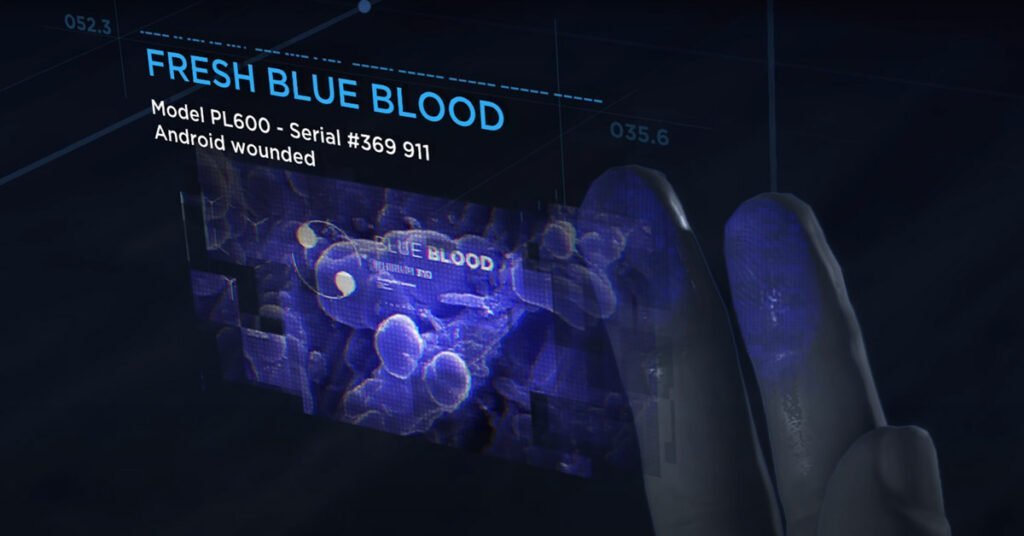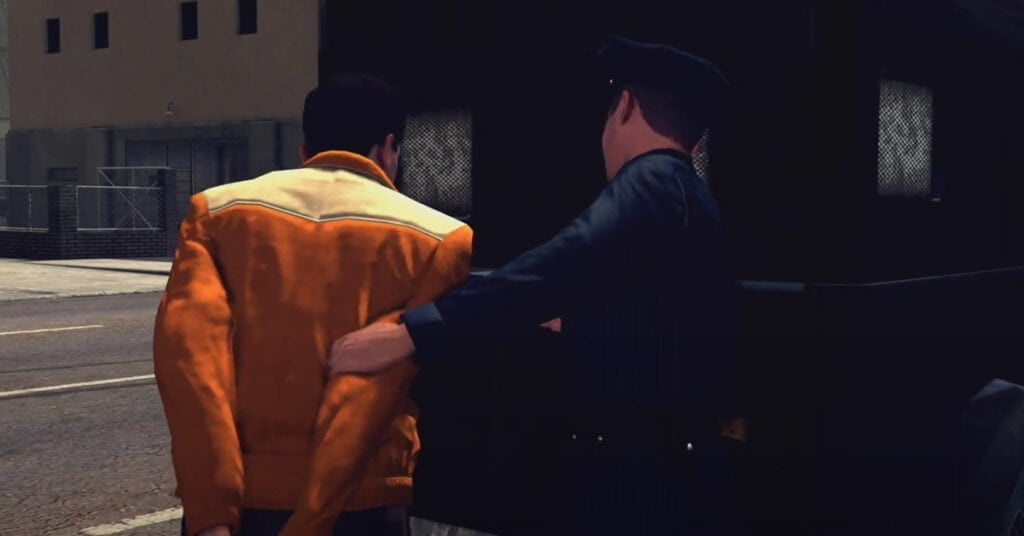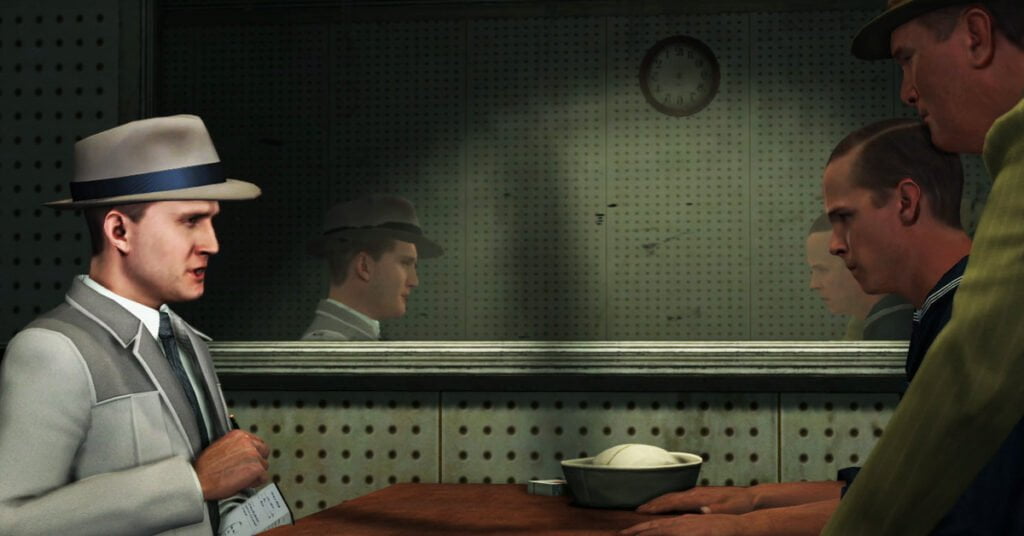Television series that focus on detectives and solving mysterious murder cases are plentiful. Classic ‘whodunnits’ such as CSI and NCIS are always well-watched and have even led to multiple spin-offs. Luther and True Detective keep viewers on the edge of their seats. English crime series such as Line of Duty, Broadchurch, and Happy Valley guarantee top quality. Detective games are a lot harder to find though. Even for established detectives.
Crime series like the ones mentioned above are almost like interactive television. As a viewer, you have the same mission as the main character; solving the case. Who can you trust? Who can’t you trust? Which character is hiding something? Isn’t that always cheerful and friendly agent a little too nice?
Unfortunately for me, these cases often go over my head. I’m happy if I can remember the full names of the most important characters. To solve these mysterious murder cases, you need to be cut from a different cloth (and often have inner demons and skeletons in your closet, but that’s beside the point).
Games are increasingly presenting themselves as series and movies. Some games even go so far as to release episodically, with each episode ending with a cliffhanger or plot twist.
Established actors also regularly lend their voice and appearance to the gaming world. Cyberpunk 2077 heavily advertised the presence of Johnny Silverhand, played by Keanu Reeves. Cyberpunk 2077’s DLC Phantom Liberty also makes room for Idris Elba. Norman Reedus is the face of Death Stranding, and there are countless other examples.
L.A. Noire

Where the gaming and film/TV worlds overlap in many areas, the detective games are lagging behind. The gaming world seems to flourish more in the fantasy and action genres.
One exception is L.A. Noire, a game that allowed players to step into the shoes of a detective. Released in 2011, it was published by Rockstar and developed by Team Bondi.
Players controlled the main character Cole Phelps, who had to solve various cases in different departments. Phelps rose through the ranks in departments such as traffic, vice, and homicide. Players visited and investigated crime scenes and victims, and found evidence. This evidence could later be linked together. If done correctly, found clues helped during interrogations. Interrogations involved reading the face and body language of the person being questioned. Players had to analyze how the suspect reacted to certain evidence and whether their answers made sense. You could choose to trust or doubt the suspects’ words.
In addition to the various cases, there was also an overarching storyline, as is often the case with TV detective series.
L.A. Noire takes place during the 1940s, so modern technology naturally doesn’t play a role. There are no quick DNA or fingerprint analyses; just old-fashioned police work.
The game sold around 5 million copies and was well-received by both fans and critics. L.A. Noire won BAFTA awards for Best Original Score and Best Action/Adventure game, among others. Despite the positive reception, a sequel never happened. Unfortunately, it also didn’t lead to more games in the same genre.
Detroit: Become Human

Detroit: Become Human is a game that is completely different from L.A. Noire in terms of genre, but Quantic Dream’s science-fiction game does feature a detective character. It revolves around three androids, one of whom is Connor. Connor is an android specially developed to assist the police.
In the very first scene, you are deployed to de-escalate a hostage situation. You are first given time to investigate the crime scene. Players explore the apartment and inspect various clues to find out what led to the situation. Connor uses some technical gadgets and can simulate what happened, based on certain pieces of evidence. By analyzing wounds, the android can “see” what led to the injury. Furthermore, to the horror of his human partner, Connor can analyze the “blood” of other androids by “tasting” it.
You then have a conversation with the hostage-taker and can use the found clues to engage in dialogue. The more evidence you have found, the greater the chance that you will say the right things.
Later in the story, players also question someone in an interrogation room. The goal is to keep the suspect at a certain stress level. You can increase the pressure if the suspect is not intimidated enough, or choose the good cop approach if he feels too cornered.
Connor’s partner, Hank, is a typical detective as we often see on television. He is gruff, closed off, and skeptical. And as if there weren’t enough stereotypical boxes ticked yet, he also frequently reaches for alcohol and is suicidal. The relationship between the two detectives follows a tried and tested formula.
But why aren’t there more AAA detective games set in our time?
The contrast between detectives Cole Phelps and Connor is significant. One works with old-school methods and operates in a 1940s atmosphere. The cars and music all fit the era. The other has all kinds of technological gadgets at his disposal and works in a futuristic setting where he has to catch other androids. Both characters have to solve different cases and penetrate the minds of others. They must use their found objects to uncover motives and perpetrators.
All well and good, but why are there so few contemporary detective games? In neither of the games above can we use and analyze clues as it’s done in our time. We don’t have to find fingerprints and search through databases. It’s not necessary to sift through hundred hours of camera footage to trace our suspect’s actions. Okay, now that I’ve written it out, that actually doesn’t sound super interesting to do. But surely a good game developer can make it fun and engaging. Perhaps with mini-games like the ones used in Marvel’s Spider-Man?

It is known that players like to take on the role of an action hero. It’s satisfying to beat or shoot down enemies quickly. Players enjoy taking control quickly and turning off their minds. Turning off your mind during a detective story is usually not a good idea. You could say that the main goal of gaming kind of goes against the principle of the detective genre. Gaming is a great way to take your mind off work or school. You don’t have to do anything except entertain yourself. Of course, your hero often has the task of saving the world (no pressure). But in these games, you often do it in a visually spectacular way.
Realistic detective games should take a more subdued approach. Players of this genre will need to be patient and work towards the conclusion at a slower pace. They constantly need to pay attention to stay invested in the story.
Undoubtedly, there is also a market for this type of game. But the fact remains that entering this market does carry more risks. While detectives may have a convincing background in TV series, their skills may not translate as easily to the world of video games. It’s not a proven concept yet, unlike the many hit television shows. There is less certainty, and certainty is of course an important factor when developing new games. After all, the amounts involved in the gaming industry are not insignificant. Developing an AAA title costs 80 million dollars on average. It takes a lot of guts to take a gamble with that.
The Importance of Rewards

However, detective games do leave a lot of room for one of the most important things in gaming: rewards. From childhood to death, reward is one of the biggest motivators of the human mind. As a child, you might have wanted a reward in the form of an extra candy. Getting a sticker or a checkmark from your teacher could make your day. A good grade in school was a reward for your hard work. A salary increase, promotion, or even just a compliment from your boss can be incredibly motivating.
All of this is also the driving force in gaming. Complete this quest for some extra money. Deliver this package from point A to point B for a cool new armor. Kill this monster to unlock a new, powerful sword. Even simple XP points that you get for doing the smallest of tasks are developed as rewards and motivation.
Imagine playing a game where you’re searching for that damn culprit the entire time. You’re thrown in at the deep end and start the story ill-informed. The clues are scarce, the victim had no enemies. The mystery is all question marks. Questioning witnesses leads nowhere. You’re sent from pillar to post and feel lost at times. But you don’t give up. You’re a detective and you’ll put that maniac in handcuffs, even if it’s the last thing you do.
And then slowly but surely, you find your first useful clues. You search crime scenes and more and more pieces of the puzzle start falling into place. Then you find that one breakthrough that sets everything in motion. You interrogate suspects. Every time you get closer to unraveling the mystery, you feel like you’ve achieved something. And when you finally read that bloodthirsty criminal his rights, you feel like a genius. Sherlock Holmes, eat your heart out.
Hopefully, this genre will be explored more in the near future. The industry needs more successful examples. I, for one, would love to witness a rise of this genre in the gaming world!







